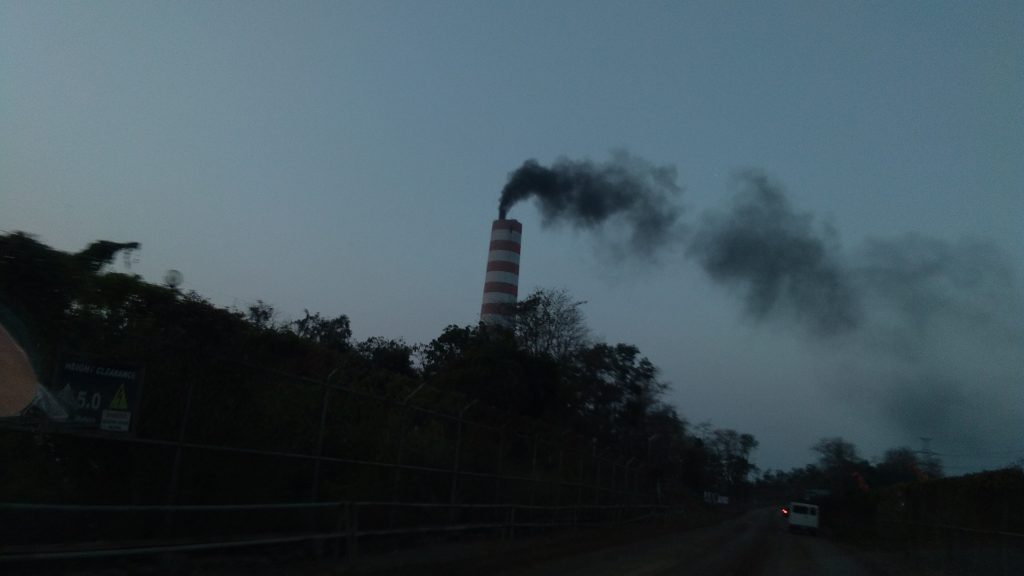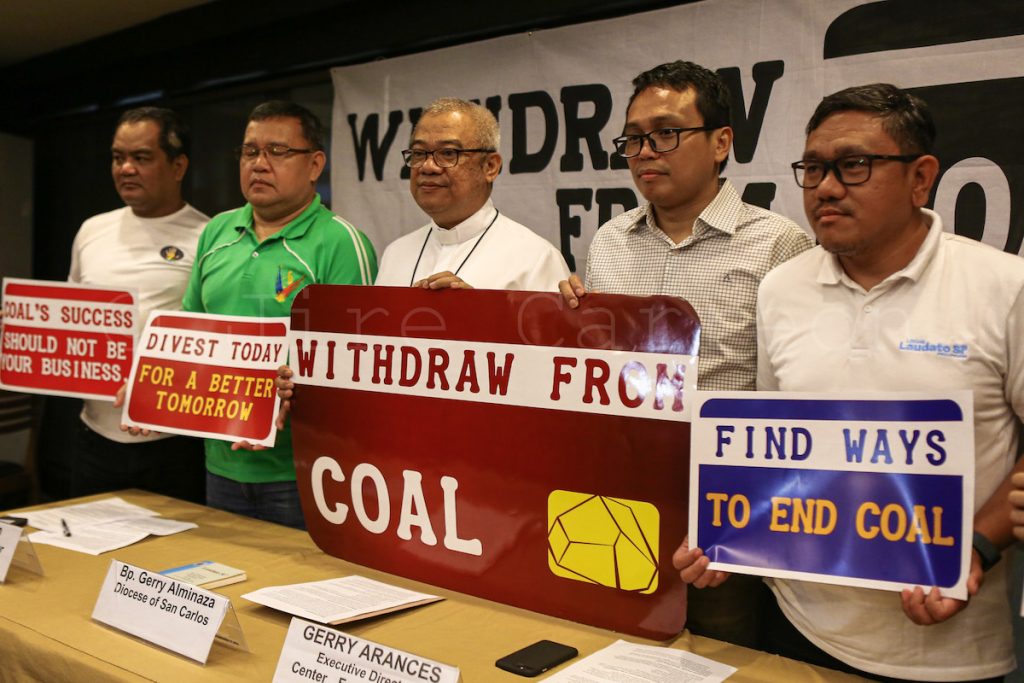Pro-environment groups in the Philippines scored a victory after the country’s energy department announced the cancellation of three coal-fired power plant projects on July 2.
In a letter sent to the group Center for Energy, Ecology, and Development (CEED), the Department of Energy said the proponents have decided to “discontinue” the proposed coal projects in the towns of Sariaya and Pagbilao in Quezon province, and Malabuyoc in Cebu province.
Gerry Arances, lead convenor of Power 4 People Coalition, said the cancellation of the coal projects is “a sign to power companies and financiers that coal is simply bad news they should now be running away from.”
“As more coal projects get out of the way, we need not and should not make our abundant renewable energy potential wait to be tapped any longer,” said Arances.
The energy department also “delisted” another three proposed coal projects in the provinces of Davao Oriental, Misamis Occidental, and Batangas “due to nonsubmission of the required monthly power project updates.”
The document also indicated that a 1200-MW coal-fired power plant project in Tagkawayan town in Quezon province is under review.
The letter was a response to the inquiry made by CEED to clarify whether these proposed coal projects are covered by a coal moratorium advisory issued by the DOE in December 2020.
Father Warren Francis Puno, head of the Ecology Ministry of the Diocese of Lucena, said the cancellation of the coal projects is “a victory for the environment and to the affected communities.”
“We will remain vigilant. Our fight against dirty energy is not yet over. The amount of destruction to the lives of the people and to the nature of these projects are beyond repair,” the priest said.
Monsignor Noel Villareal, director of the Stewardship Program of the Diocese of Lucena, said the recent development must lead to the “cancellation of other ongoing dirty energy projects.”
“It is our moral obligation to effect a swift transition to renewable energy sources and work for the protection of our common home,” the priest said.


There are 28 coal-fired power plants currently operating throughout the country with a total installed capacity of 9.88 gigawatts.
Rodne Galicha, executive director of Living Laudato Si Philippines, said the public must continue to assert their opposition to dirty energy projects “in order to secure a better future for the next generation.”
He urged the government to “finally end the country’s dependence on dirty energy sources” and “implement existing laws and enact more policies that will enable the transition into renewable energy.”
Coal accounts for nearly half of the Philippines’ energy mix and is expected to increase to 53% by 2030 if the other proposed plants that have already been approved come online.
Since 2017, no new coal power plants have been built because of massive opposition from the communities and other sectors.
Bishop Jose Colin Bagaforo, national director of Caritas Philippines, said his organization welcomes the “change of heart” of the coal proponents.


The prelate said divestment from fossil fuels “is one of the things that Caritas Philippines will be putting forward during the plenary of the Catholic Bishops’ Conference next week.”
“If businesses and other Churches, and the government are showing good faith, why can’t we as Catholic Church,” said Bishop Bagaforo.
Ian Rivera, national coordinator of the Philippine Movement for Climate Justice, said the country’s coal project pipeline “is now crushed” with at least 5.8 GW composed of 10 projects that “have succumbed to the campaigns of climate justice groups.”
“These projects can no longer continue as odds have already been stacked against them – in terms of climate, finance, and market,” said Rivera.
Rivera urged the Philippine government to review its Energy Plan “towards an immediate shift to renewable energy and prevention of another supply instability by 2024.”


